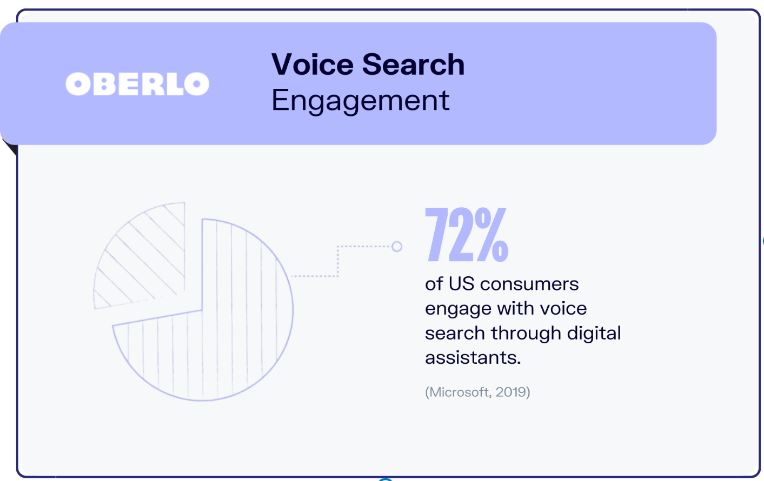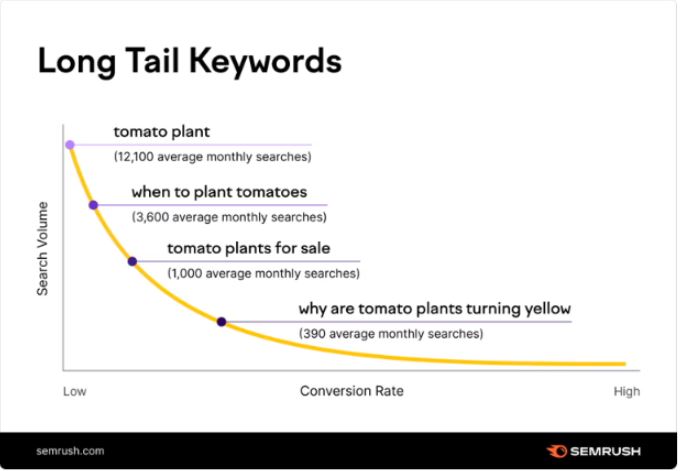It is no secret that technology is constantly evolving and advancing each year. Voice search stands as a prime example that showcases the rapid pace at which technology is progressing.
Initially designed as a novelty with limited capabilities, voice search has undergone a transformative journey. Today, with the rise of voice assistants, it has evolved into an essential tool embraced by many for their day-to-day activities. As a result, voice search trends are becoming an integral component of digital marketing and are expected to lead the marketing landscape in 2024.
What Is Voice Search
Voice-enabled search, more popularly known as voice search, is a technological innovation originally introduced on smartphones as an advancement in speech recognition. It was designed to enable individuals to seek information by speaking instead of typing texts into a search box.
Unlike text searches, voice search emphasizes a conversational marketing strategy, prioritizing natural language and delivering concise, direct responses. This necessitates optimized content that understands the context and intent behind users’ spoken queries.
Statista‘s voice search statistics highlights the increasing significance of this innovation. The
global count of active voice assistants, including Siri, Alexa, and Cortana, reached 4.2 billion in
2020. Projections indicate that this figure is expected to double, reaching 8.4 billion by the year 2024.
Another study conducted by Synup revealed that 40 percent of adults engage in daily voice searches. Meanwhile, 72 percent of voice-activated speaker owners use voice search to find information on local businesses.

Image from Oberlo
Given these numbers, it is only understandable why many brands are focusing on optimization and adjusting their digital marketing strategies to align with this technological and behavioral shift.
The Future of Voice Search
Voice SEO Philippines is among the fast-growing digital marketing trends many businesses are now utilizing. Many enterprises have even integrated voice search with other online marketing techniques like buy-per-click to further enhance its effectivity.
Therefore, staying abreast of the changes in voice search is crucial to remaining relevant in the extremely competitive digital marketing landscape.
Below are some projected voice search trends that will take over in 2024.
- Increased accuracy and contextual understanding
Advancements in speech recognition and Natural Language Processing (NLP) will enhance voice search’s capability to handle conversational search terms accurately.
NLP is a pivotal element in voice search technology as it influences the outcome of voice-initiated queries. It empowers virtual assistants and other voice-activated devices to comprehend and decipher natural language employed by users during voice searches.
NLP converts spoken words into written text to interpret the intent behind a query, allowing search engines to formulate an appropriate response. With NLP and speech recognition’s enhancements, it is expected that interactions between users and voice search technology will become even more seamless.
- Mobile apps
Many users often utilize voice search while driving, cooking, or performing other activities, making it a simple, convenient, and time-saving solution.
Fueled by ongoing technological developments, businesses can seamlessly incorporate voice search into their mobile applications, providing users with the ability to utilize it effortlessly.
An instance illustrating this concept is the Shazam app, which employs voice search for song identification. Users can initiate the process by opening the Shazam application, allowing it to listen to a brief audio clip. Subsequently, the app will attempt to recognize the song and provide the user with details such as the song title and the artist’s name.
- Personalization
As voice assistants become more adept at recognizing individual voices, the potential for personalization also grows.
Businesses can leverage voice search technology to enhance personalization and provide a more tailored and engaging experience for users. One example is by leveraging consumers’ voice search data to analyze and understand their preferences and behavior. Using this information, companies can provide their customers with more personalized recommendations.
- Voice chatbots
Traditional text-based chatbots will no longer be enough for future consumers. In 2024, the prominence of voice chatbots is set to rise, aligning with the increasing demand for intuitive and natural interactions.
This means consumers will increasingly embrace voice-driven interactions. As a response, businesses must prioritize the integration of voice chatbots to meet evolving expectations and enhance user satisfaction.
- Hyperlocal searches
Current trends reveal that over half (58%) of consumers use voice search to explore local businesses. The increasing number and frequency of voice searches, with 46% using it daily for local business inquiries, highlights the importance for companies to optimize their voice search strategy to gain an advantage in attracting local traffic.

Image from Cision PR Newswire
- Voice-activated advertisements (VAAs)
A Voice-Activated Advertisement (VAA) is a form of interactive ad that users can engage with using their voice. These ads communicate directly with users, presenting personalized offers and prompting responses, creating a highly engaging experience.
VAA’s engagements are recognized for their notable rates. Take Instreamatic’s report as an example. It is stated that their voice-activated advertisements have averaged 12 percent, with some campaigns even reaching as high as 19 percent. Given this level of response, marketers can anticipate the increasing popularity of this advertising format.
Voice Search Strategies to Boost Search Engine Performance
Companies can adopt various strategies to leverage voice search effectively, enhancing customer engagement and staying ahead in the evolving landscape of voice-enabled technology. Here are some key strategies:
- Use conversational keywords
With the usual text searches, individuals typically employ fragmented phrases rather than complete sentences. But with voice search, the interaction resembles a conversation with a person.
This necessitates a shift in the choice of keywords or phrases integrated into your SEO strategy. By pinpointing words and phrases directly pertinent to your product or service, you increase the likelihood of achieving favorable results.
- Aim to be mobile-friendly
Mobile friendliness is a critical feature that every business aspiring to achieve a high rank should possess. This is especially important if you are to employ voice search. With the surge in voice searches originating from mobile devices, it is imperative that your strategy acknowledges this trend and giveS importance to mobile friendliness.
Google’s web crawlers currently focus on the assessment of the mobile version of your site before indexing, underscoring the significance of having a mobile-responsive site for optimal rankings.
Prior to crafting your SEO voice search strategy, it is crucial to confirm that the mobile version of your site functions seamlessly on popular devices.
- Utilize schema markup
Schema markup is a form of microdata that enhances a search engine’s understanding of content. It provides structured information about a webpage, aiding search engines in presenting more informative and relevant results to users.
In essence, schema helps search engines interpret and display essential information accurately, making it easier for virtual assistants to provide users with relevant and concise answers.
This, in turn, enhances the overall user experience and improves your chances of appearing in voice search results.
- Incorporate long-tail keywords
Compared to text searches, voice searches entail more extended queries. So beyond the usual keywords, it is also essential to emphasize long-tailed ones.
Voice search users naturally articulate more detailed queries, potentially enhancing your conversion rate. Recent research by Semrush reveals a correlation between long-tail keywords and improved conversion rates.

Image from Semrush
Leverage the Power of Voice Search with DMP
While the key to achieving success with voice search optimization mainly lies in using natural, conversational language to address customer inquiries, it can still get complicated, especially for the inexperienced.
Digital Marketing Philippines (DMP) is a reliable SEO service provider Philippines that offers not only SEO but also pay-per-click marketing services. With our team’s expertise, you can seamlessly integrate voice search into your digital marketing strategy.
Check out our services and allow us to help you grow your business. Visit our website or fill out our online form to start!
Learn more about our SEO packages Philippines through these articles:
- How AI Can Transform SEO Link Building? (Infographic)
- Leverage Visual Storytelling to Win More Leads (Infographic)
- Maximize Visibility with Combined SEO and Social Media Strategy
Sources:
https://www.atinternet.com/en/glossary/voice-search/
https://www.statista.com/statistics/973815/worldwide-digital-voice-assistant-in-use/
https://www.synup.com/voice-search-statistics
https://www.linkedin.com/pulse/embracing-future-trend-4-voice-search-convo-marketing-isaac-diaz/
https://www.webfx.com/blog/seo/voice-search-trends/
https://pubmed.ncbi.nlm.nih.gov/29327988/
https://www.algolia.com/blog/ux/what-is-voice-search/
https://yellow.ai/blog/future-of-chatbots/
https://www.readspeaker.com/blog/voice-activated-advertising/
Jomer B. Gregorio is a well-rounded expert when it comes digital marketing. Jomer is also known as a semantic SEO evangelist and practitioner. Check out our Digital Marketing Services today and let us help you in achieving positive and profitable results for your business.
